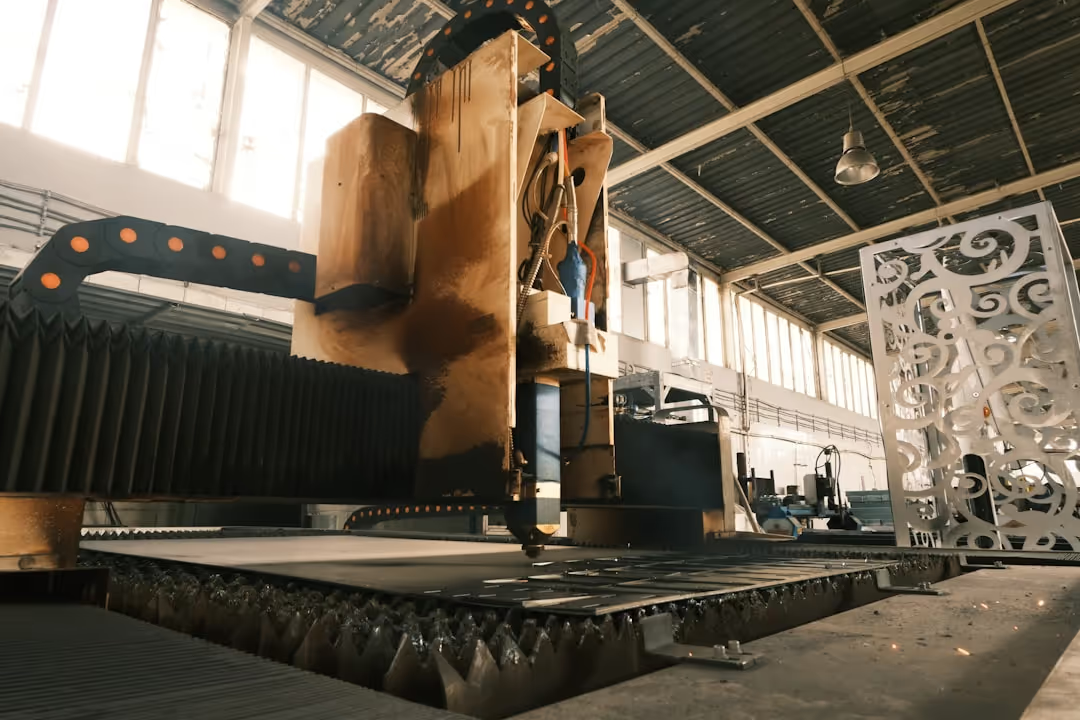The Emergence of Automation in AI Workflows
Over the years the business world has seen significant changes due to the incorporation of artificial intelligence (AI) in different operational tasks. A notable development in this field is the automation of AI workflows, which is revolutionizing how businesses function by providing levels of efficiency and productivity.
AI workflow automation involves utilizing AI technologies to automate tasks in a business process by utilizing machine learning algorithms and data analytics to manage workflows with minimal human involvement. This not only accelerates operations but also decreases the chances of human mistakes while improving the overall quality of results.
In today's business landscape where speed and efficiency are crucial for staying ahead of the competition, AI workflow automation has evolved from being a mere trend to an essential tool for companies striving to remain competitive. With the demand for quicker and more cost-efficient services rising, businesses are recognizing the significance of leveraging AI-powered solutions. Whether it's enhancing supply chain processes or improving customer experience, the integration of AI workflow automation is reshaping business operations significantly.
Integrating AI workflow automation into business operations offers an advantage: the ability to achieve cost savings. By automating tasks, companies can cut down on their need for labor, leading to decreased labor costs. Additionally, AI systems can function 24/7, guaranteeing the continuation of business processes without any breaks.
Enhancing cost efficiency is improved by optimizing how resources are allocated effectively using AI systems to analyze data and pinpoint areas of underutilization or waste within a business setting for decision-making regarding resource management. This initiative not only cuts down costs but also boosts the return on investment significantly.
Not only does AI workflow automation help save costs directly, but it can also enhance the calculation of cash flow by offering precise and prompt financial information to assist businesses in making smarter financial choices that enhance cash flow management. This is a crucial factor for small and medium-sized enterprises (SMEs) working with restricted financial means.
AI workflow automation isn't just about saving money-it's a catalyst for fostering innovation within businesses as well! When routine tasks are automated and offloaded from employees' plates, it allows them to direct their energy towards level thinking and unleashes creativity. This shift in attention often sparks the creation of products, services, or innovative business frameworks.
Additionally, artificial intelligence systems have the ability to analyze sets of data in order to spot trends and patterns that might not be easily noticeable to analysts. This insight based on data can assist in making informed decisions, allowing companies to remain competitive and adjust to evolving market circumstances.
Business innovation is greatly boosted by AI's role in enhancing collaboration and communication within organizations. Automated processes help in promoting the sharing of information between departments and breaking barriers that hinder teamwork. This fosters an environment that encourages the creation of ideas and strategies to propel business expansion and achievements.
The Importance of Automated Processes in Improving Operational Efficiency
Automated processes are fundamental in the realm of AI workflow automation as they play a role in optimizing business procedures accurately by automating information and task flow across various systems and departments.
Automated workflows offer an advantage by streamlining business processes to eliminate bottlenecks and delays efficiently and swiftly enhance service quality and delivery speed.
Moreover, automated processes can improve transparency and accountability in a company by creating a trackable record of actions to meet obligations and uphold strong governance practices.
Calculating cash flow is a part of managing finances effectively. AI is set to transform this procedure entirely! With the help of AI tools and technologies, companies can enhance the precision and speed of their cash flow assessments, resultantly boosting their outcomes.
Businesses can use AI systems to examine past information and recognize patterns and trends that can help in predicting cash flow reliably to minimize the chance of running into cash flow problems in the future.
Additionally, artificial intelligence has the ability to automate cash flow calculations without requiring data input and minimizing the chance of mistakes occurring. This not only saves time but also improves the precision and dependability of financial reports-equipping businesses with essential insights to make well-informed financial choices.
Navigating Obstacles in Automating Workflows for Artificial Intelligence
Though utilizing AI workflow automation comes with its advantages and perks for businesses, it does bring about obstacles that need to be addressed in order to maximize its effectiveness fully. One of the issues lies in establishing an IT framework that can uphold AI systems and automated processes.
Businesses need to commit to acquiring the hardware and software to guarantee the operation of their AI systems. It might involve an outlay of funds, but the future advantages in terms of cost reduction and productivity enhancements can surpass the initial expenses.
One more obstacle businesses face is the requirement for staff to oversee and uphold AI systems as they progress with advancements in AI technologies to guarantee their workforce possesses the skills and expertise for successful incorporation and oversight of AI solutions.
With the growing dependence of businesses on AI for workflow automation comes the need to prioritize the protection and confidentiality of data utilized in these systems, as they often handle information prone to cyber threats and breaches.
To reduce these risks effectively, enterprises need to put in place security measures to safeguard their AI systems and data, such as encryption methods and access controls, along with security checks to detect and fix any possible weaknesses.
Furthermore, companies need to guarantee that they adhere to laws on privacy protection, like the General Data Protection Regulation (GDPR), to protect the confidentiality of their clients and partners effectively. By giving importance to security and privacy aspects, businesses can establish trust with their clientele and uphold an image in the industry.
The Role of Humanity in Automating AI Workflows
Although AI systems have capabilities, the human touch is still vital for AI workflow automation. While AI can manage tasks, human insight and creativity are crucial for making decisions and fostering innovation.
Businesses need to find the mix of automation and human touch to make sure that their workers can make the most of AI tools to improve their job performance. This might involve setting up training and skill development initiatives to prepare employees for collaborating with AI technology.
Moreover, companies should promote an environment of transparent communication urging staff to exchange their perspectives and suggestions. By incorporating a human touch into automated AI workflows, companies can enhance their performance and spur creativity in their activities.
In light of the progress in AI technologies and their integration into industries, companies need to get ready for a reality where automating workflows with AI will become pivotal in their day-to-day activities. To achieve this seamlessly, they must embrace technology and manage transitions effectively.
Companies need to stay up to date on the advancements in intelligence and consider how these innovations could enhance their current operations by trying out new AI tools and regularly assessing their effects on business outcomes.
In the running for businesses that adopt AI workflow automation and take advantage of its capabilities will be in a position to succeed in the coming years. By putting resources into AI technologies and promoting an environment of creativity and forward-thinking, businesses can attain effectiveness, save on costs, and gain an edge.
In today's business landscape, AI-powered automation is revolutionizing how companies operate, providing cost savings and fostering innovation and efficiency. Through the automation of tasks and the optimization of processes, businesses can boost their productivity and operational flexibility.
To effectively integrate AI workflow automation into operations requires planning and addressing key challenges, like security and privacy concerns alongside human considerations to leverage the full potential of AI technology for fostering growth and success in today's digital era.
In the evolving landscape of business where AI is becoming a player in operations, companies need to stay flexible and embrace change to thrive successfully. Utilizing AI tools and nurturing an environment that encourages ideas can help companies lead the way and secure accomplishments.

.avif)










